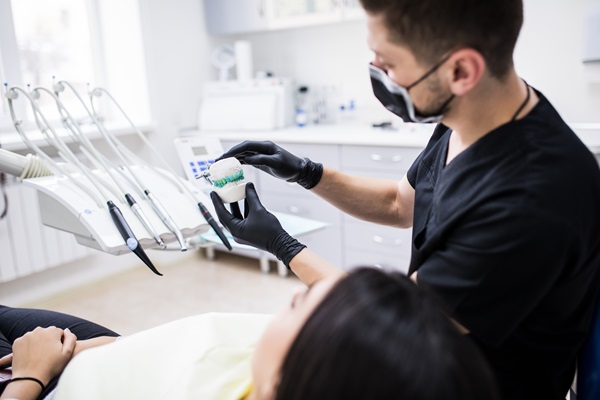Commonly Asked Questions Answered by a Preventive Dentist

A preventive dentist promotes long-term oral wellness by focusing on early detection, regular checkups, and proactive measures to protect teeth and gums from disease. By prioritizing prevention, you can avoid many dental issues before they even begin. Explore some of the most frequently asked questions about preventive dentistry, gain valuable insight that can help you maintain a healthy smile, and avoid more complex dental problems and subsequent procedures down the road.
Why is preventive dentistry so important?
Preventive dentistry is vital because it allows dentists to spot potential issues in their earliest stages before they develop into more serious and costly problems. Routine visits to a preventive dentist include thorough cleanings, exams, and screenings that help detect conditions like cavities, gum disease, or oral cancer early on. This proactive approach protects oral health and helps avoid painful procedures or extensive treatments. Encouraging patients to take a preventive approach reinforces the importance of daily oral care and healthier habits.
How often should dental checkups and cleanings be done?
The general recommendation by the American Dental Association, or ADA, is to visit the dentist every six months for checkups and cleanings. However, some individuals may need more frequent visits depending on their specific oral health needs. A preventive dentist considers factors such as the patient's medical history, current oral health status, and any risk factors that may contribute to the development of dental issues. Those with a higher risk of gum disease, cavities, or other dental concerns may require more frequent visits. Regular appointments provide the opportunity to address small issues before they turn into bigger problems.
What are the key preventive measures to follow at home?
Maintaining a proper oral hygiene routine is crucial for preventing dental issues between visits. Brushing at least twice daily with a dentist-approved toothpaste and a soft-bristle toothbrush helps remove plaque and bacteria that can lead to tooth decay. Flossing once daily is equally important, as it cleans areas between teeth that brushing cannot reach. Using an antibacterial mouth rinse can help reduce bacteria and promote healthy gums. Limiting sugary snacks and beverages reduces the risk of cavities, while drinking water throughout the day helps wash away food particles and bacteria. A balanced diet rich in vitamins and minerals also supports strong teeth and healthy gums.
How does a preventive dentist create an individualized treatment plan?
A preventive dentist develops personalized care plans based on a patient's unique dental needs and goals. The dentist can recommend treatments that effectively protect and preserve teeth and gums by reviewing oral health history, dietary habits, and lifestyle factors. Common preventive measures may include fluoride treatments to strengthen enamel, dental sealants to protect the chewing surfaces of molars, and recommendations for custom mouthguards to protect teeth during contact sports or for individuals with bruxism (teeth grinding).
Call us for more information
A preventive dentist plays a crucial role in helping individuals maintain healthy smiles for years to come. Many dental issues can be prevented or addressed early through regular dental checkups, personalized care plans, and the adoption of effective home care routines. If you are ready to schedule a dental appointment or have more questions about preventive dentistry, contact Premier Esthetics Dental Office of Mark R. Gadberry D.D.S., Inc. today.
Request an appointment here: https://premieresthetics.com or call Premier Esthetics Dental Office of Mark R. Gadberry D.D.S., Inc. at (626) 472-2170 for an appointment in our Covina office.
Check out what others are saying about our dental services on Yelp: Preventive Dentist in Covina, CA.
Related Posts
Preventive dentistry can protect your teeth and gums. Its main goal is to keep dental problems away. It also aims to detect any oral issue early to prevent it from worsening. Preventive dentistry clinics have different ways to help keep your dental health in top condition. If you want to know how preventive dentistry can…
The importance of a dental exam often gets ignored. It can be easy to skip check-up appointments as life can get busy and most individuals think that at-home oral hygiene is enough to maintain healthy teeth and gums. However, this misconception is far from the truth. Dental exams give general dentists the opportunity to look at…
Not flossing regularly can increase the risk of developing oral health concerns, such as dental cavities and periodontal disease, so a general dentist encourages patients to floss several times a day and stick to a consistent oral care schedule to reduce the risk of oral health complications in the future. Flossing is essential to good oral…
Brushing your teeth is one of the easiest and most effective things you can do to keep them healthy. It is an important part of your hygiene routine. It can be the difference between having a bright smile you can be proud of or ugly looking teeth you are reluctant to display.Simply brushing teeth every…
